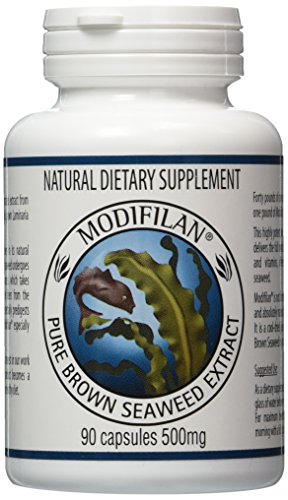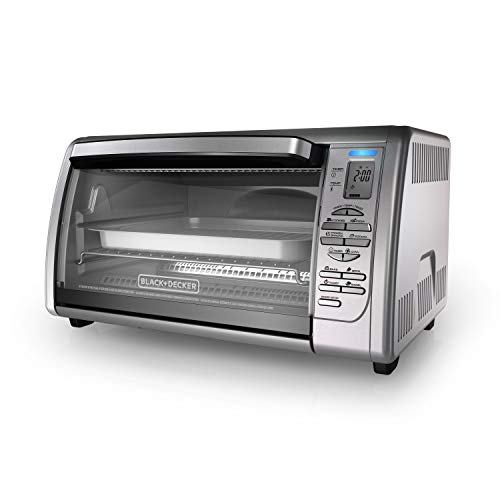Heparin is a medication that is commonly used as an anticoagulant, meaning it helps prevent blood clots from forming or getting bigger. It is often prescribed to patients who have certain medical conditions, such as deep vein thrombosis or pulmonary embolism. But one question that often arises is whether heparin needs to be refrigerated.
When it comes to storing heparin, it is important to follow the manufacturer’s instructions. In most cases, heparin does need to be refrigerated to maintain its potency. This is because heparin is a delicate medication that can break down when exposed to high temperatures. Refrigerating it helps to keep it stable and effective.
However, it is worth mentioning that there are different types of heparin available, and some may have specific storage requirements. It is always best to check with your healthcare provider or pharmacist for the specific storage instructions for the type of heparin you are using.
In addition to refrigerating heparin, it is also important to store it properly in order to maintain its effectiveness. Heparin should be stored away from direct light, moisture, and heat sources. It is also important to keep it out of reach of children and pets to prevent any accidental ingestion.
In conclusion, while refrigeration is generally recommended for most types of heparin, it is best to consult with your healthcare provider or pharmacist for the specific storage instructions for the type of heparin you are using. Proper storage of heparin is crucial to ensure its potency and effectiveness.
Benefits of Refrigerating Heparin
Refrigerating heparin is an important practice that has several benefits. Here are some of the advantages of keeping heparin in cold storage:
1. Increased Stability
Storing heparin in the refrigerator helps to maintain its stability and potency. Heparin is a delicate substance that can degrade over time, especially when exposed to heat or light. By refrigerating heparin, you can slow down the degradation process and ensure that the medication remains effective for longer periods.
2. Prolonged Shelf Life
Keeping heparin in cold storage extends its shelf life. The cool temperature in the refrigerator helps to preserve the integrity of the drug, preventing it from degrading or breaking down. This allows healthcare providers to keep a larger stock of heparin on hand, reducing the frequency of restocking and ensuring that the medication is always available when needed.
In conclusion, refrigerating heparin offers several significant benefits, including increased stability and prolonged shelf life. By storing heparin in cold storage, healthcare providers can ensure that this vital medication remains effective and readily available for patients in need.
Effectiveness of Refrigerated Heparin
The effectiveness of refrigerated heparin is a subject of debate among healthcare professionals. Heparin is a commonly used anticoagulant that helps prevent blood clots, and it is typically stored in a refrigerator to maintain its stability and potency.
Refrigeration is believed to slow down the decomposition of heparin, helping it retain its effectiveness for a longer period of time. This is especially important for heparin solutions that are used in clinical settings, as their quality and efficacy need to be preserved.
However, refrigeration alone may not be sufficient to ensure the effectiveness of heparin. Factors such as temperature fluctuations, exposure to light, and improper handling can affect its potency. Therefore, it is essential to store heparin correctly and follow the manufacturer’s recommendations.
Additionally, healthcare professionals need to be aware of the expiration dates and discard any expired or compromised heparin products. Using expired heparin can lead to ineffective anticoagulation therapy, potentially increasing the risk of blood clots.
In summary, refrigerated heparin is generally considered to be more effective due to its extended stability. However, proper storage, handling, and adhering to expiration dates are crucial to maintain its effectiveness. Healthcare professionals should follow established protocols and guidelines to ensure the safe and effective use of heparin in patient care.
Stability of Heparin at Room Temperature
Heparin, a commonly used anticoagulant, is typically stored in a controlled environment such as a refrigerator to maintain its stability. However, there may be situations where refrigeration is not readily available or practical. In such cases, it is important to understand the stability of heparin at room temperature.
Studies have shown that heparin can remain stable at room temperature for short periods of time. The stability of heparin is influenced by various factors, including the concentration of the solution and the specific formulation of the product.
Generally, unfractionated heparin (UFH) solutions have been found to remain stable for up to 48 hours when stored at room temperature. However, it is important to note that prolonged exposure to room temperature may lead to degradation of the drug, potentially reducing its efficacy.
It is recommended to use heparin stored at room temperature as soon as possible to ensure its maximum potency. If refrigeration is not available, storing heparin at room temperature should only be considered as a temporary solution.
It is worth mentioning that the stability of heparin at room temperature may vary depending on the specific product or brand. It is always advisable to consult the manufacturer’s instructions or consult with a healthcare professional for specific storage recommendations.
In summary, while heparin can remain stable at room temperature for short periods of time, it is generally recommended to store it in a refrigerator to ensure its stability and efficacy. Storing heparin at room temperature should only be temporary and it is important to follow the manufacturer’s instructions for proper storage guidelines.
Proper Storage of Heparin
Heparin is a medication commonly used to prevent blood clots. It is important to store heparin correctly to maintain its effectiveness and ensure patient safety.
Here are some guidelines for proper storage of heparin:
1. Refrigeration:
Heparin should be stored in the refrigerator at a temperature between 2 to 8 degrees Celsius (36 to 46 degrees Fahrenheit). This helps to maintain the stability and potency of the medication. It is important to keep heparin away from direct light and heat sources, as they can degrade the medication.
2. Proper Packaging:
Heparin should be stored in its original packaging to protect it from moisture and light. The packaging should be tightly closed to prevent any air or moisture from entering.
3. Avoid Freezing:
Do not freeze heparin as it can cause the medication to lose its effectiveness. Freezing can also lead to physical changes in the medication, such as the formation of crystals, which can alter its properties.
4. Keep Away from Children:
Store heparin in a safe place out of reach of children. The packaging should have child-resistant features to prevent accidental ingestion.
Following these storage guidelines will help to ensure the stability and effectiveness of heparin. It is important to always check the expiration date before using heparin and discard any expired medication. If you have any doubts or questions about the storage of heparin, consult a healthcare professional for further guidance.
Considerations for Heparin Storage
Proper storage of heparin is crucial to ensure its effectiveness and stability. Here are some important considerations for heparin storage:
Temperature: Heparin should be stored at room temperature, generally between 15°C and 30°C (59°F and 86°F). It is important to avoid exposure to extreme temperatures, as both heat and cold can potentially affect the potency and stability of the medication.
Refrigeration: While heparin does not necessarily need to be refrigerated, some forms of the medication, such as certain injectable preparations, may require refrigeration. It is essential to follow the storage instructions provided by the manufacturer, as they can vary depending on the specific product.
Protection from light: Heparin should also be protected from light exposure, as light can degrade its potency. Therefore, it is recommended to store heparin in its original packaging or in an opaque container that can shield it from direct light.
Proper packaging: When storing multiple vials of heparin, it is important to keep them separate from other medications to avoid potential contamination. Additionally, ensure that the packaging is intact and not damaged to maintain the sterility and effectiveness of the medication.
Expiration date: Always check the expiration date of heparin before administration. Expired heparin should not be used as it may have degraded and could potentially be ineffective or even harmful.
In summary, heparin should be stored at room temperature, protected from light, and in accordance with the specific storage instructions provided by the manufacturer. By following these considerations, the efficacy and stability of heparin can be maintained, ensuring its effectiveness in various medical settings.
FAQ
Does heparin have to be refrigerated?
Yes, heparin needs to be refrigerated to maintain its effectiveness. Storing it at the recommended temperature helps to preserve its potency and prevent degradation.
What happens if heparin is not refrigerated?
If heparin is not refrigerated, it may lose its effectiveness and become less potent. The active ingredients in heparin can degrade at higher temperatures, which can affect its ability to prevent blood clotting effectively.
Can heparin be stored at room temperature?
No, heparin should not be stored at room temperature. It is recommended to store it in the refrigerator to maintain its potency and stability. Storing heparin at room temperature can lead to degradation of its active ingredients.
How long can heparin be left out of the refrigerator?
Heparin should not be left out of the refrigerator for an extended period. Ideally, it should be returned to the refrigerator as soon as possible after use. Leaving heparin at room temperature for too long can reduce its effectiveness and increase the risk of bacterial contamination.







